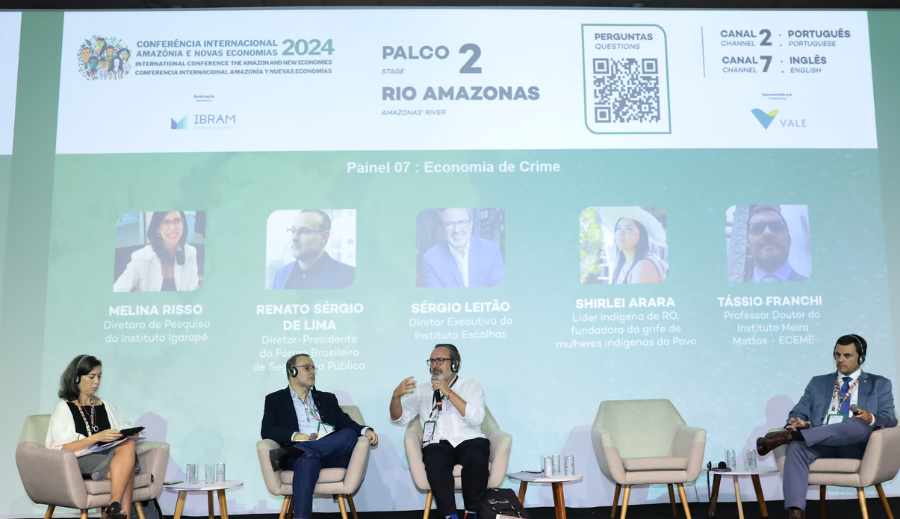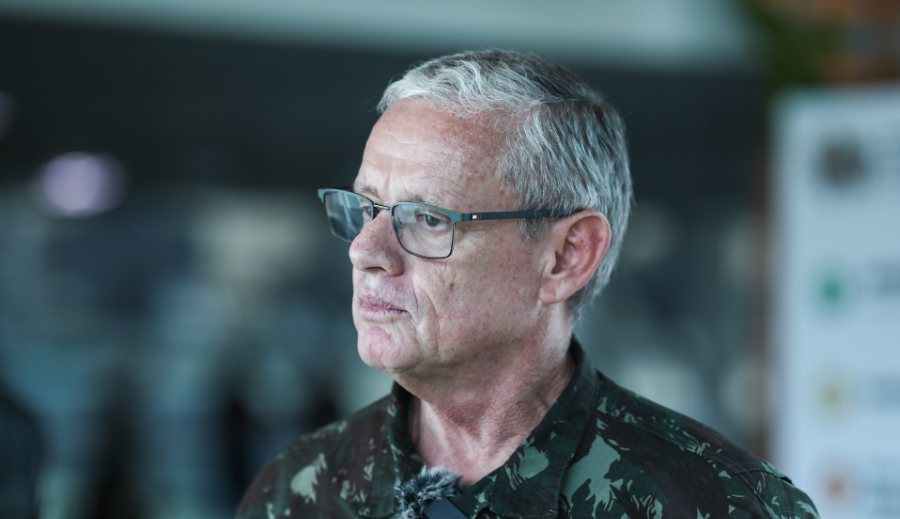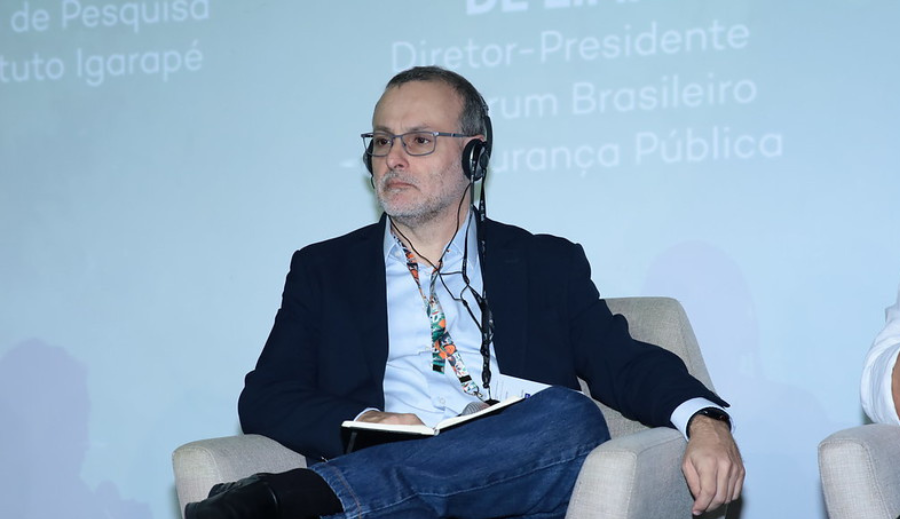Text by Nilson Cortinhas, edited by Alice Martins Morais
Photos: Philip Bishop and IBRAM Disclosure
Irregular activities that affect the Amazon biome were discussed at the 2nd International Conference on the Amazon and New Economies, in Belém (PA). To combat this, the panelists suggested broad action by control agencies and research institutes to identify the problem in its magnitude. According to the CEO of the Brazilian Public Security Forum, Renato Sérgio de Lima, criminal networks have assumed a kind of leading role in places where the state is absent, mainly in offering or creating working conditions for the population.
“How can we include people in the formal economy without resorting to crime?” he asked. “The flag of Roraima has a gold miner. It is an activity considered legitimate,” he added.I'm Renato, I saidreferring to the coat of arms of the State of Roraima.

Panel discussed "Economics of Crime" at the International Conference, this morning (07). Credits: IBRAM Disclosure
For the director of the Public Security Forum, the response must go beyond reprimand. “To reduce crime, [we need to remove] its military and financial power from Brazil.” “We need to have a broader economy than mining. Research production is necessary, data production is necessary, but we need to put data [on this issue] on the agenda,” he stated.
For the Executive Director of Instituto Escolhas, Sergio Leitão, one issue needs to be resolved: the offender needs to be punished and reintegrated into society. “We don’t look at poverty. If we don’t have alternatives for poverty, we will lose the region,” he stated emphatically.
The journalism initiative Amazônia Vox is providing its first live, in-person coverage this week. With a team of twelve professionals, the main points and debates of the panels during the 2nd International Conference on the Amazon and New Economies will be highlighted. Follow the coverage here.
Evolution of crime
Researcher and doctor at the Meira Mattos Institute, Tássio Franchi, made a correlation that generates apprehension among defense and protection agencies. According to him, illegal mining is a problem in Brazil, especially considering that offenders have created structures outside the Brazilian state. “You start to find rifles inside the mines. Before, you found cartridges. Today, you find an AK47 [assault rifle],” he declared.
The scholar suggests more focused action by ministries and the federal government structure. “We need an open dialogue. And balance so that crime does not pay. We need to bring other ministries that are not so present in the Amazon into the dialogue,” he said, referring to the economy department, for example.
Army General says crime has its origins in “state anomie”
The continental territorial dimension of the Amazon, the absence of an amplified and state-led policy, in addition to the scarcity of a broad project that encompasses science and technology were challenges cited by the Military Commander of the Amazon, General Ricardo Augusto Ferreira Costa Neves, during another panel at the Conference, entitled “environmental crime in protected and indigenous territories”.
“The Amazon is in fashion. The whole world is talking about the Amazon,” Costa Neves emphasized. According to him, the Brazilian state needs to reconcile actions by protection agencies to solve a fundamental problem: the lack of efficiency of public policies, which leave the local population susceptible to irregularities.

General Ricardo Augusto Ferreira Costa Neves. Credits: Felipe Bispo
“We face many challenges, such as the lack of a national policy for the Amazon. We are talking about an area of continental dimensions. And in the Amazon, we have state anomie, that is, few or insufficient actions and initiatives to provide social services. This lack of action makes it easier for the population to be co-opted into crime,” he explained.
Among the other debaters, there is a consensus on expanding state regulation in the region to act both in monitoring and in protecting traditional peoples.
The Secretary-General of the Brazilian Biodiversity Fund (FUNBIO), Rosa Lemos Sá, informed that the Fund supports 200 million hectares of protected areas, in addition to assistance for communities. “There is also support from management agencies, with resources for command, control and monitoring. When compared to units that do not have this support, we can see that they are much more affected by deforestation,” he said, referring especially to Indigenous Units and National Parks.
Rosa Sá reinforced the consolidation and importance of assertive use of public resources. “The investment made is small compared to the preservation benefits it brings,” she emphasized.
Environmental Analyst and Superintendent of the Brazilian Institute of the Environment and Renewable Natural Resources (IBAMA) in the State of Rondônia, César Luiz da Silva Guimarães celebrated the percentage drop in deforestation in the Amazon, of more than 30%, the largest reduction in 15 years, according to Prodes system data, from the National Institute for Space Research (Inpe), released yesterday (06).
César guaranteed that the combination of forces between state bodies is “fundamental for reducing deforestation” and condemned ideas that permeate the weakening of environmental licensing. “Loosening will not solve the problem. Quite the contrary. We have to tighten licensing”, he concluded.
A special coverage Amazônia Vox at the International Conference on the Amazon and New Economies is brought to you by Vale.




